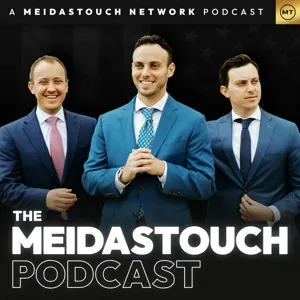Podcast Summary
UK Prime Minister's U-turn on Social Care Policy: UK PM Theresa May reversed her party's controversial 'dementia tax' social care policy, replacing it with a 'floor' to limit individual's care costs at £100,000.
The UK Prime Minister, Theresa May, made a controversial U-turn on her party's social care policy just days before the general election, replacing a proposed cap on care costs with a floor. The initial policy, dubbed a "dementia tax," suggested that individuals would have to sell their assets, including their family homes, to cover care costs until they were left with £100,000. Critics argued that it unfairly burdened older generations, and the Labour Party capitalized on the issue to scare vulnerable voters. May's U-turn resulted in a new policy where no one would have to pay more than £100,000 for their care, effectively flipping the cap into a floor. The controversy underscores the financial challenge of providing care for an aging population and the political sensitivity of the issue.
Proposed tax policy for care costs in UK sparks controversy: The proposed tax on larger estates to cover care costs was met with controversy, with some seeing it as fair and others as regressive. The current system, which caps care costs, is criticized for being unsustainable and not addressing the growing need for care as the population ages.
The proposed change in tax policy for care costs in the UK, which would have seen the introduction of a progressive tax on larger estates to cover care costs, was met with controversy. While some saw it as a fair way to distribute the burden of care costs, others felt it was regressive and unfairly targeted those with smaller homes and fewer assets. The current system, which caps care costs at £80,000, was criticized for being unsustainable and not addressing the growing need for care as the population ages. Research suggests that the number of people requiring care could increase by 25% in the next decade, and finding ways to pay for and provide care will be a major challenge for society. Ultimately, the solution may lie somewhere between these two approaches, with a balance struck between those who can afford to contribute to their own care and the need for a social safety net to support those who cannot.
Political uncertainty and complexities in social care funding: Individuals face uncertainty and potential financial consequences due to lack of clarity on political issues, particularly social care funding. Planning and advocating for systemic changes are crucial.
There is a lack of clarity and structure regarding various political issues, including immigration and social care funding, leading to uncertainty and potential financial consequences for individuals. The issue of social care funding, in particular, is complex and requires a well-thought-out plan with cross-party support to ensure stability. Additionally, there is a need for more open and honest discussions about the financial realities and limitations of the government's ability to provide entitlements. Furthermore, the rise of cohabiting older couples and the lack of recognition of common law marriage in the current system can result in missed tax breaks and state pension rights. It is crucial for individuals to be aware of these complexities and plan accordingly, while also advocating for systemic changes to address these issues.
Outdated legal and financial frameworks: Modern relationships and societal norms require updated laws for marriage, inheritance, and wills to avoid financial and legal consequences in older age. Stay informed and adapt accordingly.
The current legal and financial frameworks in place, particularly regarding marriage and inheritance, no longer adequately address the changing realities of modern relationships and societal norms. The lack of recognition for cohabiting couples and common law marriages can lead to significant financial and legal consequences, especially in older age. The government's failure to keep up with these changes can create uncertainty and make it difficult for individuals to plan for their futures. To mitigate these risks, it is essential to write wills, keep them up to date, understand your rights, or consider marriage. The ongoing political tinkering and potential policy changes further complicate matters, making it crucial to stay informed and adapt accordingly. Ultimately, these issues can erode trust and faith in saving and investing for the future.
Government interference and rule changes discourage pension savings: People hesitant to save in pensions due to concerns over potential rule changes and government interference, leading them to consider alternative investments
While it's important to save for retirement through a pension, many people are hesitant due to concerns about government interference and potential rule changes. Steve mentioned the risk of politicians getting "grubby mitts" on pension money and the uncertainty surrounding the age at which one can access their pension pot. He also highlighted the issue of the government reducing pension benefits, such as the lifetime allowance, which has been cut significantly in recent years. The fear of these changes may discourage people from saving in pensions and could lead them to consider alternative investments, like the housing market. To address this, Steve suggested locking the pension basics, like the tax-free lump sum, into the system to make it harder for future governments to change the rules. However, he acknowledged the challenges and risks associated with such legislation.
Understanding the pension system and economic trends: Stay informed of pension system changes and adapt to economic shifts for effective financial planning
The pension system, despite its flaws, remains one of the best ways to save. However, it's important for individuals to stay informed and adaptable, as rules and regulations can change. Economically, the UK's GDP growth was lower than expected in Q1, with consumer spending decreasing due to rising inflation and wages not keeping up. This has led to a falling savings ratio and a decrease in exports, despite the lower pound. These economic trends may continue with the uncertainty surrounding Brexit. Overall, it's crucial for individuals to be aware of these economic shifts and adjust their financial plans accordingly.
Revised GDP growth estimate for Q1 is 0.2%: Economic growth in Q1 was lower than anticipated due to a slowdown in the service sector and household spending. Consumer debt and Brexit uncertainty could impact future growth.
The initial estimate for GDP growth in the first quarter of the year was revised down from 0.3% to 0.2%, which is a slight undershoot of expectations. This revision can be attributed to a slowdown in the service sector and household spending. Economists had anticipated a slowdown from the previous quarter's growth rate, but the actual figure came in lower than expected. However, it's important to note that GDP estimates are subject to revision, and it's too early to tell if this is a trend or a one-time occurrence. Additionally, the uncertainty surrounding Brexit and its potential impact on the economy makes economic forecasting particularly challenging at the moment. Consumer spending, which makes up a significant portion of the economy, is a key factor to watch. Household debt, which is on the rise, could also curb consumer spending in the future. Ultimately, the health of the economy depends on various factors, including wage growth, housing market trends, and consumer sentiment.
Consumer spending driven by affordable financing and normalized debt attitudes: Consumer spending remains strong despite slowing wage growth and housing market, thanks to affordable financing and normalized attitudes towards debt. However, retail sector faces challenges due to increased costs and fragile consumer confidence.
Despite the slowing wage growth and housing market, consumer spending continues to be driven by affordable financing options and normalized attitudes towards debt. However, the retail sector, specifically Marks and Spencer, is facing significant challenges due to increased costs and a fragile consumer confidence. The industry's success in encouraging spending, through interest-free deals and normalized debt, could be a concern if sentiment towards debt and spending shifts. Despite Marks and Spencer's significant losses last year, the market responded positively due to the company's clear turnaround plan and progress towards removing unnecessary discounts and gaining full price market share. However, the uncertain economic horizon and fragile consumer confidence remain significant challenges for the industry.
Investing in companies' future stories and anticipating earnings growth or rerated valuation: Marks and Spencer's food business is performing well, and new leadership could lead to improvements. Forward Money's high-demand regular saver and regular saver ISA illustrate the importance of quick action in securing the best savings rates.
Investing in the stock market involves buying into a company's future story and expecting the share price to rise based on that belief. This can be due to anticipated earnings growth or a rerated valuation. Marks and Spencer (M&S) is an example of a company that has faced challenges in recent years, but there is optimism about its future under new leadership. The food side of the business has been performing well, and the new CEO's focus on core buyers and fashion could lead to improvements. Meanwhile, in the world of savings, it's essential to be quick and vigilant to secure the best rates. The recent success of Forward Money's 4% regular saver and regular saver ISA illustrates this point, as it was withdrawn due to high demand just days after launch. Another option for savers is to consider current accounts with attractive introductory offers, but there may be requirements such as using the current account switching service to qualify.
Find the best current account deals with incentives: Check out This Is Money's roundup for top current accounts, considering incentives, customer service, and online security.
There are current accounts offering attractive bonuses and incentives, such as TSB's current account with a potential maximum bonus of £295. However, these offers often come with conditions like minimum direct debits, monthly deposits, and time limits. To help make an informed decision, it's recommended to check out This Is Money's roundup of the best current accounts, which considers factors like customer service and online security, in addition to financial incentives. Additionally, keep in mind that some deals may only last for a year, and if you have a large savings pot, it might be worth considering investing instead.
Vanguard enters UK DIY investing market with low fees: Vanguard's low-cost, simple platform could attract new investors, but carefully consider all options before starting to invest as small costs add up and it's challenging to switch platforms.
Vanguard, the world's second-largest asset manager, has entered the UK DIY investing market with extremely low fees, potentially sparking a price war. Vanguard is famous for its tracker funds, which simply follow the stock market, and its new platform charges just 0.15% annually with no buying or selling costs. However, it only offers its own funds, whereas other platforms provide access to a wider range of investment options. For new investors, Vanguard's simple and low-cost offering could be attractive, but it's essential to consider all options carefully before starting to invest. Remember, small costs add up over time, and it's challenging to switch platforms once you've started investing. So, take your time to evaluate different platforms and find the best fit for your investment goals and needs.
Britannia's Gold: A multibillion pound treasure hunt: Britannia's Gold is raising funds for a cargo salvage operation promising private investors a share of profits from sunken World War gold shipments, but it's uncertain if it's legal or profitable and high-risk investment
A team of salvage experts is raising funds for a multibillion pound treasure hunt, promising private investors a share of the profits if they find gold shipments sunk during the World Wars. The company, Britannia's Gold, led by chairman Philip Reid, claims to have information on the location of the ships and is trying to raise £5,000,000. However, it's important to note that this is not a traditional treasure hunt but a cargo salvage operation, and the legality and profit distribution are uncertain. While it may sound exciting, it's a high-risk investment and not suitable for everyone, especially those with limited funds. It's recommended to follow the progress of the operation and make informed decisions based on updated information.





